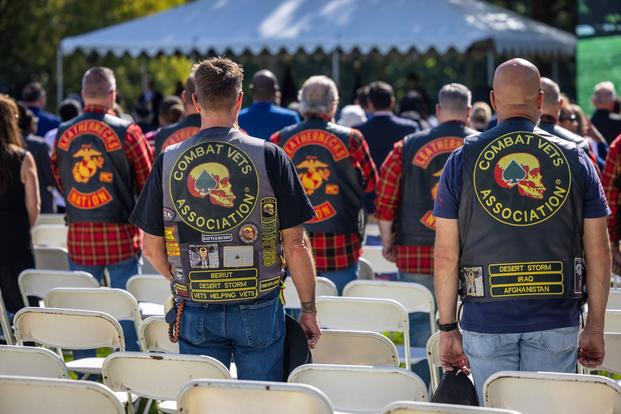
Many military veterans want to be buried in military-related cemeteries. One common misconception when planning the burial of a veteran is that the Department of Veterans Affairs will cover all the costs of the funeral. While burial in a VA cemetery or state veterans cemetery may eliminate many of the expenses, quite a few costs are not covered by the VA.
A veteran's surviving family members may be caught off guard if they expect these costs to be covered.
What's Covered
The VA offers a burial allowance that it pays to the designated survivor. The amount varies depending on the cause of death, date of death, and whether there are expenses for the burial plot.
For example, for a non-service-connected death of a veteran who died on or after Oct. 1, 2023, the burial allowance is $948. An additional allowance of $948 is available if the veteran is not buried in a national or state veterans cemetery and there are expenses for a burial plot. If applicable, a headstone or marker allowance is $231 if the veteran died on or after Oct. 1, 2021.
For a service-connected death on or after Sept. 11, 2001, the maximum allowance is $2,000. The VA may pay some or all of the transportation costs if the veteran is buried in a national cemetery.
What's Not Covered
The VA allowance may help cover burial costs such as a casket, transfer of the remains, embalming, cosmetic services, the cost of the funeral service, use of the funeral home facilities, cremation, urn, use of hearse and/or limousines, funeral cards and other printed materials, and flowers.
If the veteran is not buried in a veterans cemetery, burial costs include the burial plot, opening and closing the burial plot, and any additional services at the cemetery.
How to Receive a VA Burial Allowance
If the veteran was married and the spouse was listed in VA records, the VA will typically send the payment automatically after being notified of the veteran's death. In all other situations, a claim is filed with the VA.
There is a two-year deadline to file claims for non-service-connected deaths. There is no deadline to file claims for service-connected deaths.
Active-Duty Deaths
The branch of service typically covers the majority of expenses for the burial of an active-duty service member.
What Should You Do?
Everyone should have a plan for paying their final expenses. Burial in a national or state veterans cemetery will reduce costs significantly. The VA's burial allowance will help offset the additional costs. For the rest of the expenses, options include a special savings account, prepaying funeral expenses or a life insurance policy specifically for this purpose.
If you intend to be buried in a national veterans cemetery, fill out the VA's Application for Pre-Need Determination of Eligibility for Burial in a VA National Cemetery.
Most importantly, make sure your family knows there will be expenses beyond the veteran's benefits. This will give them time to prepare and not be surprised.

